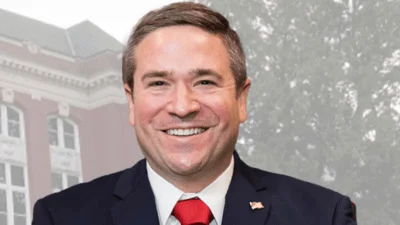Dr. Fred Pestello, President | St. Louis University
Dr. Fred Pestello, President | St. Louis University
A recent study conducted by researchers at Saint Louis University reveals that only one in eight heart failure patients in the United States receives palliative care consultations within five years of diagnosis. This finding is particularly concerning due to the increased risk and mortality rates for cardiovascular disease among Black individuals.
Over the last decade, both the American Heart Association (AHA) and the European Society of Cardiology have advocated for integrating palliative care into heart failure management. Despite these recommendations, anecdotal evidence suggests that most heart failure patients do not receive such care until the final weeks of life. "However, anecdotal reports suggest that most patients with heart failure do not receive palliative care, and those who do typically receive it only in the last two to three weeks of life," stated Zidong Zhang, Ph.D., a biostatistician at SLU's School of Medicine.
Zhang emphasized that this study is unique as it explores palliative care consultation uptake following a heart failure diagnosis across the general U.S. population. "To our knowledge, this is the first study to investigate the uptake of palliative care consultation following a heart failure diagnosis in the general U.S. population," he explained.
The retrospective study analyzed data from 2011 to 2018 using a national all-payer database, including nearly 170,000 patients aged 18 to 80 from various regions. It highlighted differences in receiving palliative care based on treatment options for acute and worsening heart failure conditions.
Findings showed that patients without cardiogenic shock but receiving inotropic therapy were less likely to get palliative care consultations compared to those treated with advanced therapies for cardiogenic shock. The discrepancy was attributed to treatment intentions and clinical inertia when managing complex cases.
Zhang noted that current AHA guidelines stress early integration of palliative care for all heart failure patients, especially those being evaluated for advanced therapies. The study identified significant gaps between these guidelines and actual practice, indicating a need for systemic reform. "These might include removing barriers in the payment system for concurrent care," said Zhang regarding potential solutions.
The research underscores an urgent need for reforms aimed at achieving early integration and timely consultation of palliative care services.




 Alerts Sign-up
Alerts Sign-up